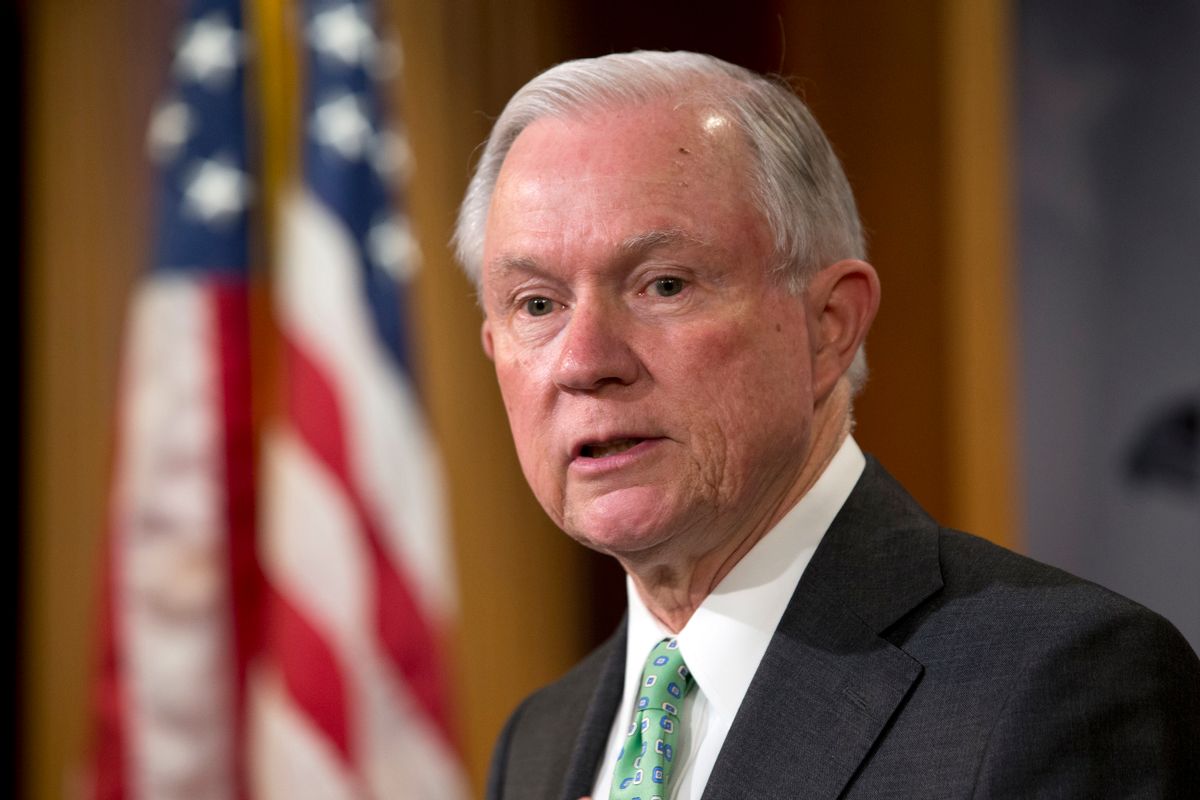Throughout the latter stages of the 2016 presidential campaign, Donald Trump made a concerted effort to pitch his case to African-American voters, urging them to break with the durable tradition of strong black support for Democratic candidates. He informed black voters that their lives in the “inner cities” were hellacious, that they lacked jobs and education and that Democrats were merely using them for their votes. It was time for them to try something different, Trump said, asking, “What the hell do you have to lose?”
Well, the president-elect wasted little time in answering that question. We all woke up this morning to the news that Trump has selected Sen. Jefferson Beauregard Sessions III of the great state of Alabama as his nominee for attorney general. Sessions harbors an aggressive hostility to civil rights and dismisses the idea that voting rights abuses take place in his home state or elsewhere. Putting him in charge of the Department of Justice means a massive rollback of the agency’s work on civil rights and criminal justice.
By selecting Sessions for this critical position, Trump made abundantly clear that his election-night speech about unity and healing was a pack of lies. This is a provocation. This is the president-elect of the United States jabbing a stumpy thumb into the eyes of civil rights activists, voting rights activists and minority voters writ large. You don’t pick Sessions as your top law enforcement official to “heal” the country; you do it to start trouble.
The biggest demerit against Sessions is the fact that the last time he faced Senate confirmation (for a federal judgeship back in 1986) his nomination was rejected because the Republican-controlled Senate found him to be a bit too racist. A 2002 New Republic profile of Sessions has all the grim details: Witnesses testified that Sessions described civil rights groups as “un-American” and “Communist-inspired,” referred to a white civil rights attorney as “disgrace to his race” and called the 1965 Voting Rights Act a “piece of intrusive legislation.” A U.S. attorney at the time of his judgeship nomination, Sessions had pursued bogus voter-fraud cases against black civil rights activists in his state.
His hostility to civil rights legislation remained in the years since. After a 2013 Supreme Court ruling gutted a portion of the Voting Rights Act intended to prevent discriminatory election practices in states with histories of black voter suppression, Sessions told a reporter that Shelby County, Alabama (the plaintiff in the Supreme Court case), “has never had a history of denying voters and certainly not now.” Alabama was, of course, a stronghold of Jim Crow segregation, and Shelby County’s history of discrimination is well-documented and ongoing.
Trump wants Sessions’ willful blindness to voter discrimination to inform DOJ policy. “He’s almost certain to further weaken what’s left" of the Voting Rights Act,” wrote Ari Berman at The Nation, “and to encourage the kind of bogus prosecutions for voter fraud that led him to be rejected for a federal judgeship.”
Not surprisingly, Trump’s selection of Sessions has drawn condemnation and a fierce rebuke from civil rights groups and liberal Democrats. The NAACP called the prospect of Sessions as attorney general “deeply troubling” and reflective of “an old, ugly history where Civil Rights were not regarded as core American values.” The Alliance for Justice described a Sessions nomination as “a blatantly inflammatory act in a time of heightened focus on violence and injustice against communities of color.” Rep. Luis Gutiérrez, D-Ill., said Sessions is “the kind of person who will set back law enforcement, civil rights, the courts, and increase America’s mass incarceration industry and erase 50 years of progress.”
Sessions fits in nicely with the majority of the other high-level appointments that Trump has made thus far in that most of them have acts of flamboyant bigotry lurking in their backgrounds. His national security adviser, retired general Michael Flynn, has called Islam a “cancer” and described fear of Muslims as “rational.” Steve Bannon, the Trump campaign CEO who is set to become the new president’s senior counselor and chief strategist, is a champion of white nationalists who has problems with what he considers to be a high number of Asian CEOs of tech firms.
Again, Trump is not uniting a damn thing here. Instead, he’s picking fights with groups that are already marginalized and vulnerable in American society. He’s letting those groups know that they will have no voice in his administration and should not expect their rights to be fought for or protected while he's in office.



Shares